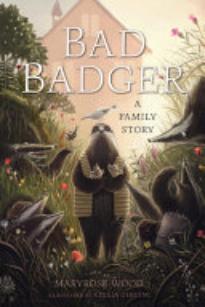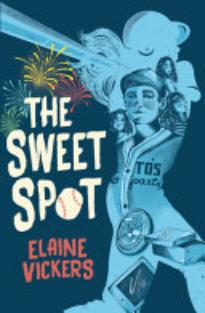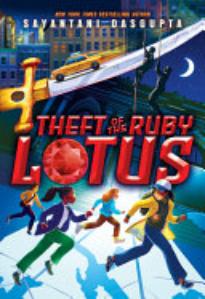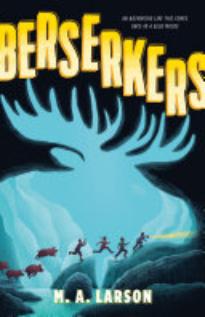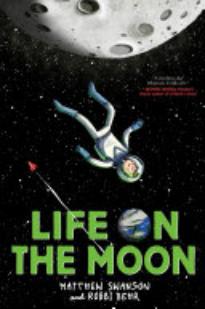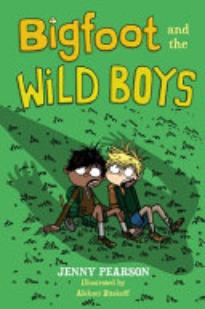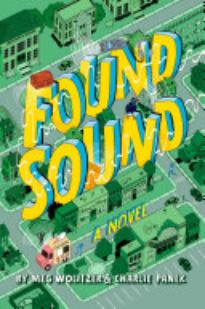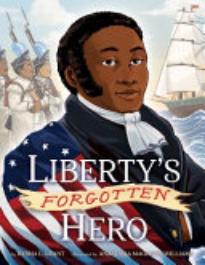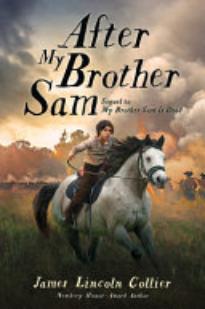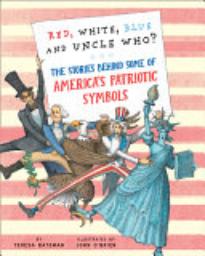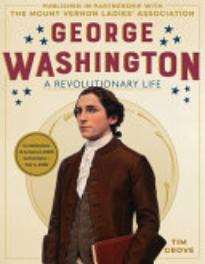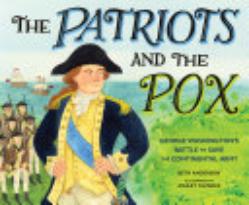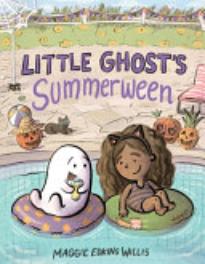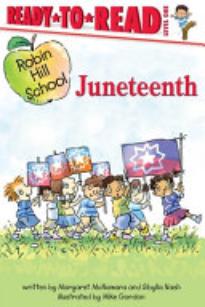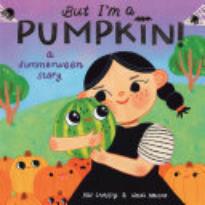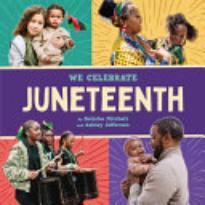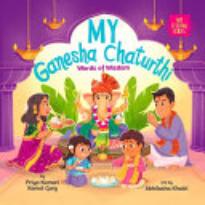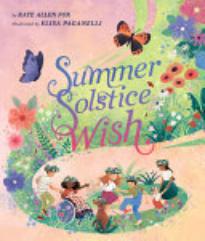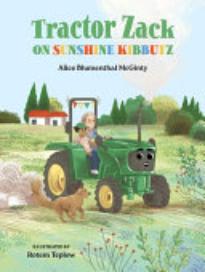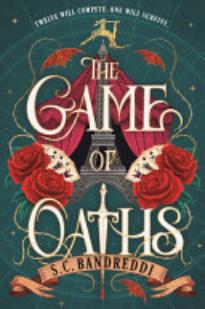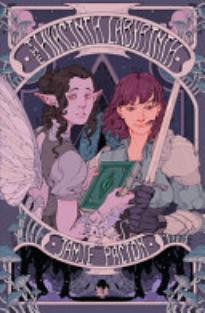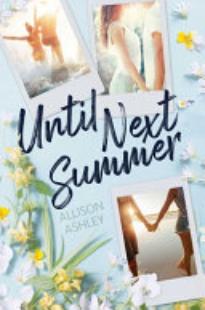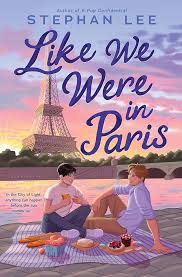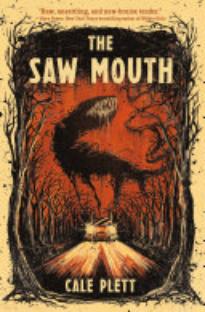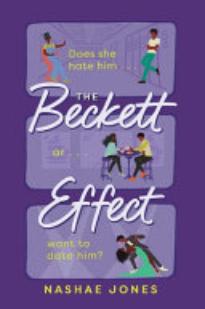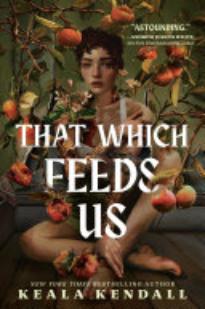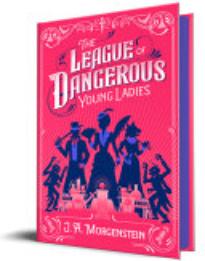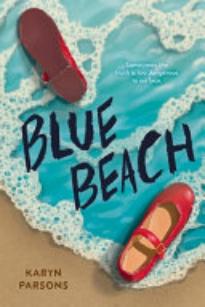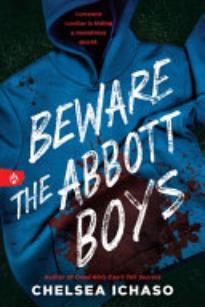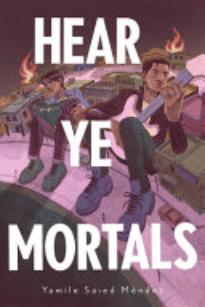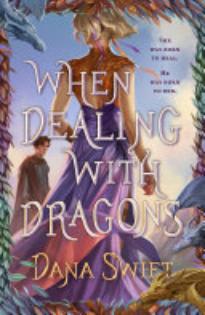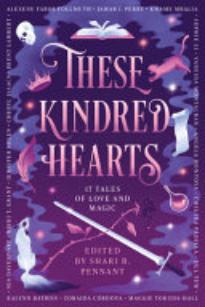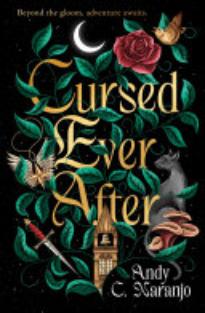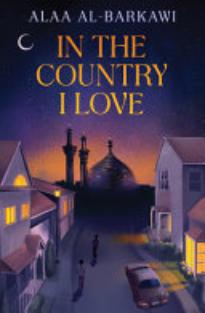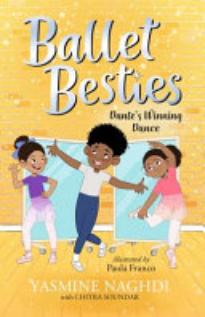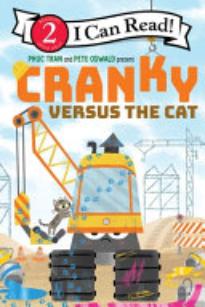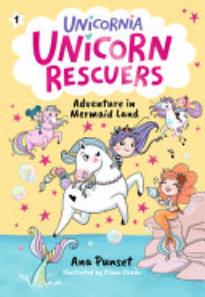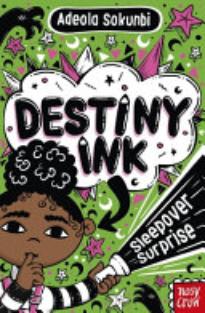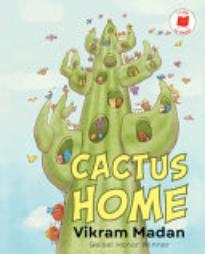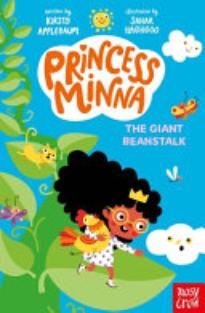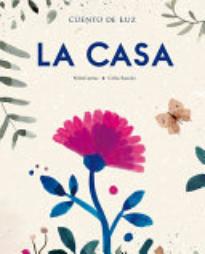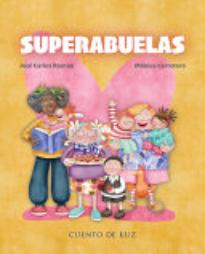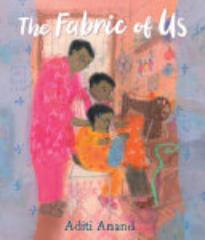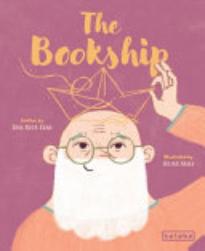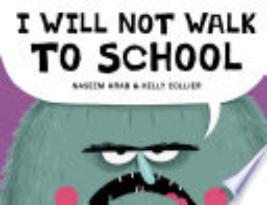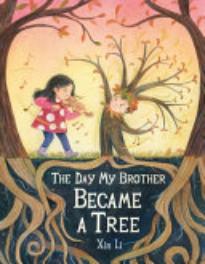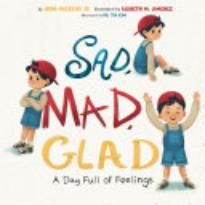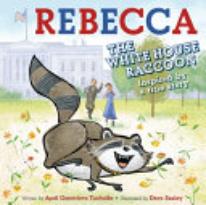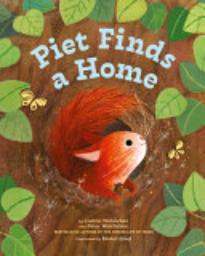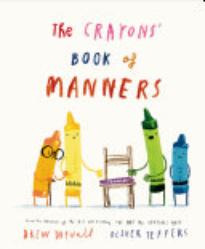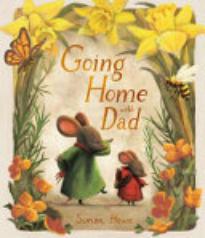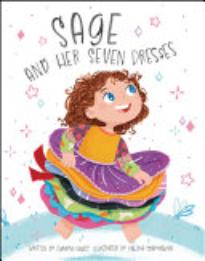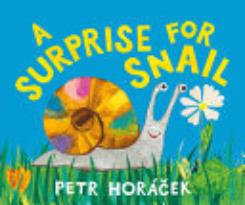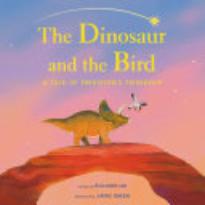Related
Readers will readily connect with Javier and his friends, whose fears, friendships, and emotional struggles feel genuine and relatable. Recommended where verse novels are popular.
A compassionate, thought-provoking story that encourages empathy and innovation. Highly recommended for middle school readers and educators.
PREMIUM
Bad Badger: A Family Story
To be perfectly frank, this flock of odd ducks welcomes everyone. A quirky title recommended for fiction collections.
A strong choice for school and public libraries, this is a positive, engaging story for upper middle graders and a welcome addition to baseball fiction collections.
PREMIUM
Journey Through the Waterfall
With its warm message, appealing visuals, and relatable themes, the book is a strong choice for early chapter book readers who enjoy adventure with heart.–Jessica Calaway
PREMIUM
Theft of the Ruby Lotus
From “ride or die” friendships to art heists to secret societies to adventure, DasGupta’s latest is sure to entertain middle graders with a variety of interests and literary tastes.
An adventurous beginning to a series that both feeds the current axolotl craze and touches on important topics, such as friendship, family, allegiances, and betrayals.
PREMIUM
Berserkers
A beautiful high-stakes story of friendship; a must-read for fans of spelunking and good adventures.
Funny and insightful, with deep philosophical questions nestled comfortably within an accessible and thrilling narrative, this is must-have for all collections.
PREMIUM
Bigfoot and the Wild Boys
This enjoyable read will capture the imagination of children longing for an adventure even while stuck in one place and is recommended for all children’s collections.
PREMIUM
Just One Gift
An exceptional read-aloud or anchor text for upper elementary and middle grade readers, inviting sustained conversations about gratitude, ethical decision-making, and the moral significance of paying attention to others.
A scavenger hunt adventure that is loving and tenderhearted about “a village” using local resources to model being open to new experiences in bold, creative, and inventive ways.
PREMIUM
Rialto
A highly recommended addition to those serving middle, high school, or even adult readers.
A charmingly labyrinthine fantasy with broad appeal for those who enjoy clever narration and lightly chaotic quests; a strong addition to collections.
A required purchase for all middle school collections and a perfect pairing with Barbara Dee’s Maybe He Just Likes You.
A first purchase for libraries that own the companion novels and for middle grade readers interested in learning about the ongoing events in Ukraine.
Carefully researched, this nonfiction biography connects readers with an early freedom fighter in a way that effectively supports historical curricula featuring the American Revolution.
Succinct and accessible, this novel makes a perilous and uncertain moment in American history tangible for contemporary middle graders.
Best for older elementary school-age readers, this work provides insight into the history behind popular American emblems and is a foundation for understanding some of the more well-known objects and people from history.
Accessible and readable, this well-researched biography is a strong addition to history classrooms supporting contemporary middle grade learners.
This unique approach to the story of the American Revolutionary War will inspire thought-provoking and relatable discussions about the complexities of life that are not always visible; it is a positive addition to curricula on war, history, and inoculation science.
Useful for both individuals and classrooms, this concise collection of well-researched facts is a browsable homage to the moments and people that molded present-day America.
PREMIUM
Little Ghost’s Summerween
A delightful follow-up for fans of the first book and for anyone who loves a dash of Halloween any time of year. A warm, funny exploration of identity and friendship that will resonate with children finding their place in the world.
PREMIUM
Juneteenth
A solid take on a noteworthy holiday for early readers, useful in a classroom setting.
For libraries in need of building their holiday collections, pick this one up. It will reach those who are looking for something fun and a little bit different, any time of year.
PREMIUM
Juneteenth: A Board Book
Children and families will enjoy seeing themselves depicted in this book. A worthy addition to most board book collections.
A successful cultural introduction and celebration of Ganesha Chaturthi that encourages readers to think about kindness, patience, and self-reflection, this is well-suited to family and classroom settings.
PREMIUM
Summer Solstice Wish
A celebration of summer warmth, tradition, and togetherness. Recommended, especially as a companion to Winter Solstice Wish.
PREMIUM
Tractor Zack on Sunshine Kibbutz
Imparting community-oriented values related to working together as a team and being resourceful, this is recommended for libraries serving young readers.
This is a compelling and sweet must-read for all teen romantasy readers who want a cozy but adventure-packed story.
PREMIUM
Change of Plans
Anyone transitioning into adulthood or who enjoys realistic coming-of-age stories will want to pick this one up. Highly recommended for school and public libraries.
PREMIUM
This Must Be the Place
A recommended purchase. This book will appeal to fans of Julie Murphy and Casey McQuiston.
This hard-to-put-down mystery centering an ensemble cast is a solid choice for fans of the genre, especially for those who loved Karen McManus’s One of Us Is Lying or Jennifer Lynn Barnes’s The Inheritance Games.
A compelling story that is highly recommended for any high school library with romance readers.
PREMIUM
All We Hunger For
The premise is engaging, the themes are clear, and the blend of social commentary, competition, and romance makes this enjoyable, especially for those drawn to stories about defiance, disguise, and hope found in unexpected places.
PREMIUM
Like We Were in Paris
This lighthearted novel is suggested as a first purchase for expanding LGBTQIA+ young adult collections.
A truly stellar example of the best that horror can be, perfect for high schoolers who are not quite ready to engage with the works of Andrew Joseph White.
PREMIUM
Every Exquisite Thing
This modern twist on a classic paints beauty, fame, and ambition in haunting new shades.
PREMIUM
The River She Became
Young readers hoping to join the romantasy trend without high levels of spice will find much to savor.
PREMIUM
The Beckett Effect
A page-turning high school drama that is smart and entertaining. Highly recommended for high school libraries.
A Gothic ghost story haunted by colonial treatment of indigenous Hawaiians, this will stay with readers long after they have finished.
A powerful, unflinching exploration of Islamophobia, identity, and grief. An essential purchase for all collections.
A rollicking adventure that can serve for some readers as a bridge from comic books to novels.
A brilliant blend of dystopian and contemporary fantasy that will leave readers in complete awe by the end.
PREMIUM
Blue Beach
An engaging period piece with an easy-to-follow mystery and highly compelling characters, this is especially relevant for its realistic depictions of race and class in American society.
A lively, heartfelt fantasy anchored by humor and queer community; a strong addition to YA and upper middle grade collections. Fans of Lukens or authors like Mackenzi Lee and Aiden Thomas will not be disappointed.
PREMIUM
Rani Deshpande Takes the Wheel
A recommended novel that will resonate particularly with eldest daughters of immigrant families.
PREMIUM
Checking You Out
For romance fans, a middling novel that hits all the right notes, even if it takes a few detours on the way. A wholesome romance for middle or high school libraries.
PREMIUM
Hear Ye Mortals
Recommended for readers who enjoy historical fiction that explores themes of authoritarianism and social upheaval with an ensemble cast of characters.
PREMIUM
Such a Lucky Girl
Intense, timely, and punctuated with grisly moments of horror, this is a recommended purchase for mature teen readers.
PREMIUM
When Dealing with Dragons
A thrilling and romantic YA fantasy that successfully tackles themes of abuse, classism, and conservation; this is a strong addition to any collection serving fans of dragon-centric fantasy or high-stakes character-driven narratives along with their romance.
Highly recommended for libraries serving teens who enjoy their fantasy, magic, and romance in small doses.
PREMIUM
Stars, Stripes & Summer Nights
A romance that will fly off the shelves and a good choice for readers not yet ready for the steamy stuff. Recommended for any library where the genre is popular.
PREMIUM
Cursed Ever After
A funny, heartfelt fantasy for fans of The Princess Bride movie and Stephanie Garber’s Caraval, this debut will circulate well in libraries where romantic fantasy is popular.
PREMIUM
Her Sharp Embrace
This story, which is a good hybrid of mystery and queer romance, stands out with its crew of femme fatales and sets the stage for a series full of magical intrigue.
PREMIUM
How to Lose Yourself Completely
A bit farfetched as a survival story, but a solid choice for readers in need of an empathetic depiction of mental health issues.
A moving exploration of a young woman finding out what she wants for her life and her body.
PREMIUM
Young World
This colorful mix of social issues, teen drama, and disaster thriller is recommended for fans of Neal Shusterman and Jennifer Lynn Barnes.
PREMIUM
In the Country I Love
A textured exploration of Shia Muslim life in the United States and the pressures facing immigrant youth. Recommended for all collections.
This exciting second book in the series is zany and entertaining, perfect for fans of the first.
Dante is an endearing character whose passion for soccer and ballet meld together to create something new and inspiring, encouraging readers to embrace kindness and the possibilities that come along with differences.
PREMIUM
Dino Mode Activated!
With some shortcomings, this title still delivers big laughs, imaginative chaos, and meaningful representation, making it a fun and affirming choice for young readers.
A perfect addition to beginning chapter book collections where the “Unicornia” series is popular, this is also amazing for kids who love unicorns and mermaids.
PREMIUM
Destiny Ink: Sleepover Surprise
An engaging, wonderful addition to transitional chapter book collections. Children will relate to Destiny and have a great time laughing and reading along.
PREMIUM
Cactus Home
A solid addition to any beginning reader collection. Also useful in SEL lessons.
Whether listeners at a read-aloud, or independent readers, children will adore Princess Minna, and enjoy comparing her story to the traditional tale.
This hilarious adventure to London will be adored by younger fans of graphic novels while they learn about new places abroad. A perfect book for readers transitioning to longer books.
PREMIUM
El camino de la vida
This work shares the importance of love throughout a lifetime. It is a great addition to every library’s Spanish language collection and a good choice for SEL collections.
PREMIUM
La Casa
A fantastic purchase for libraries with native Spanish speakers or Spanish-language learners, add this to picture book shelves.
PREMIUM
Lucía’s Goals/Los goles de Lucía
A strong choice for collections in need of girl representation in sports books for children.
A colorful bilingual addition to the world of Parr, this title is a great choice for Spanish-language picture book collections. This book would be ideal for a bilingual storytime and a great addition to both public and school libraries.
PREMIUM
Superabuelas
This Spanish-language picture book is a first purchase with a giggle-inducing twist on the “going to grandma’s house” story.
PREMIUM
Bear and Bird: The Cloud
A charming friendship tale and a strong addition to picture bookshelves
A dreamy story with sophisticated illustrations that will live in the minds of readers long after its conclusion. Recommended.
PREMIUM
The White Raven
Thrilling art conveys more than the unsubtle text to promote dialogue on these worthy topics.
In this giggle-inducing story for readers across a solid grade range, Monster’s unique conundrum offers an amusing, unexpected adventure down a familiar path.
A must for all collections, this hilarious story full of puns shows readers how creativity can be more important than size in getting a job done correctly.
PREMIUM
The Day My Brother Became a Tree
A tender portrayal of a sibling relationship in the face of a difficult life change.
A good addition to picture book collections, and a solid choice for discussing emotions with young readers.
A bright, funny picture book that reassures young children that all feelings, even the grumpy ones, are more than okay
PREMIUM
Rafi and Rita
With laugh-out-loud humor, this zesty lesson in getting along with a sibling is an excellent read-aloud and should appeal to a wide audience of readers young and old.
PREMIUM
Rebecca the White House Raccoon
No matter how Rebecca ended her days, the photographs of her at the White House bring history to young readers, making this a solid purchase for most libraries.
PREMIUM
Piet Finds a Home
A cute but slight picture book that differentiates the seasons and amplifies the beauty of the larger natural world around us.
PREMIUM
The Crayons’ Book of Manners
This amusing introduction and reminder of basic manners, similar to Sesyle Joslin’s What Do You Say, Dear? is a great first buy.
PREMIUM
Sage and Her Seven Dresses
Best enjoyed in a close setting so readers can explore and discuss the whimsical illustrations, this book is particularly well-suited to children who appreciate tales of love and family.
Easy-flowing rhymes plus construction equipment, vibrant illustrations, and strong female representation in nontraditional roles culminate in a standout title.
A gentle, engaging story about friendship and resilience that highlights the connection between one kind of dinosaur and birds is an excellent choice for developing fluency and confidence.
articles
ALREADY A SUBSCRIBER? LOG IN
We are currently offering this content for free. Sign up now to activate your personal profile, where you can save articles for future viewing




